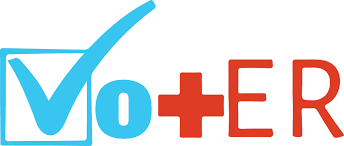Arizona’s housing crisis is spiraling, with rapid evictions driving homelessness and contributing to the state’s staggering number of heat-related deaths.
At the heart of this issue is Arizona’s 1973 Landlord and Tenant Act, a law that has remained largely unchanged for decades and, crucially, favors landlords. With extreme heat becoming a more frequent and deadly threat, especially for those without shelter, it’s time Arizona updated this outdated legislation to better protect tenants and prevent unnecessary suffering and loss of life.
The Deadly Impact of Evictions
Evictions in Arizona are fast and often leave tenants with little time to find alternative housing. The result? Many end up on the streets, exposed to the elements, particularly the brutal Arizona sun.
In 2023, Maricopa County recorded a record number of heat-related deaths, a trend that shows no sign of slowing down. A significant portion of these deaths were among the homeless population, who are especially vulnerable to extreme temperatures.
The connection between eviction and homelessness is clear, and with Arizona’s eviction process being one of the swiftest in the nation, it’s clear that the current law is worsening our public health crisis.
Maricopa County Heat Deaths in 2023: A Crisis for the Homeless & a Call for Housing Reform
The 1973 Landlord and Tenant Act, designed during a very different time, lacks the tenant protections needed in today’s housing market. While landlords benefit from a streamlined eviction process, tenants face an uphill battle to secure their housing, often with life-threatening consequences.
Learning from Other States
Other states have recognized the need for stronger tenant protections, and Arizona should take note.
Minnesota’s Landlord and Tenant Act, for example, includes more fair provisions that could serve as models for reform. Landlords must provide just cause for evictions, ensuring that tenants are not removed from their homes arbitrarily. Additionally, Minnesota law includes protections for tenants during the winter months, prohibiting evictions when the weather poses a risk to health and safety.
Colorado’s recent updates to its landlord-tenant laws also provide valuable lessons. Colorado has implemented mandatory mediation programs for evictions, offering tenants and landlords a chance to resolve disputes without resorting to eviction. This approach not only helps keep tenants in their homes but also reduces the burden on the court system and promotes fairer outcomes.
Proposed Reforms for Arizona
Arizona needs to modernize its Landlord and Tenant Act to reflect the current realities of the housing market and the increasing threat of extreme heat. Key reforms should include:
- Just Cause Eviction Protections: Require landlords to provide a valid reason for eviction, preventing arbitrary and retaliatory actions.
- Extended Eviction Timelines: Lengthen the notice period for evictions to give tenants more time to find alternative housing, reducing the likelihood of homelessness.
- Mandatory Mediation: Implement a mandatory mediation program for eviction cases, encouraging dispute resolution and keeping more Arizonans in their homes.
- Heat Season Eviction Moratorium: Prohibit evictions during the hottest months of the year to protect tenants from the dangers of extreme heat.
Updating Arizona’s landlord-tenant laws is not just a matter of fairness—it’s a matter of life and death. By adopting tenant-friendly provisions like those in Minnesota and Colorado, Arizona can reduce homelessness, save lives, improve the social determinants of health and create a more just and fair housing market.








